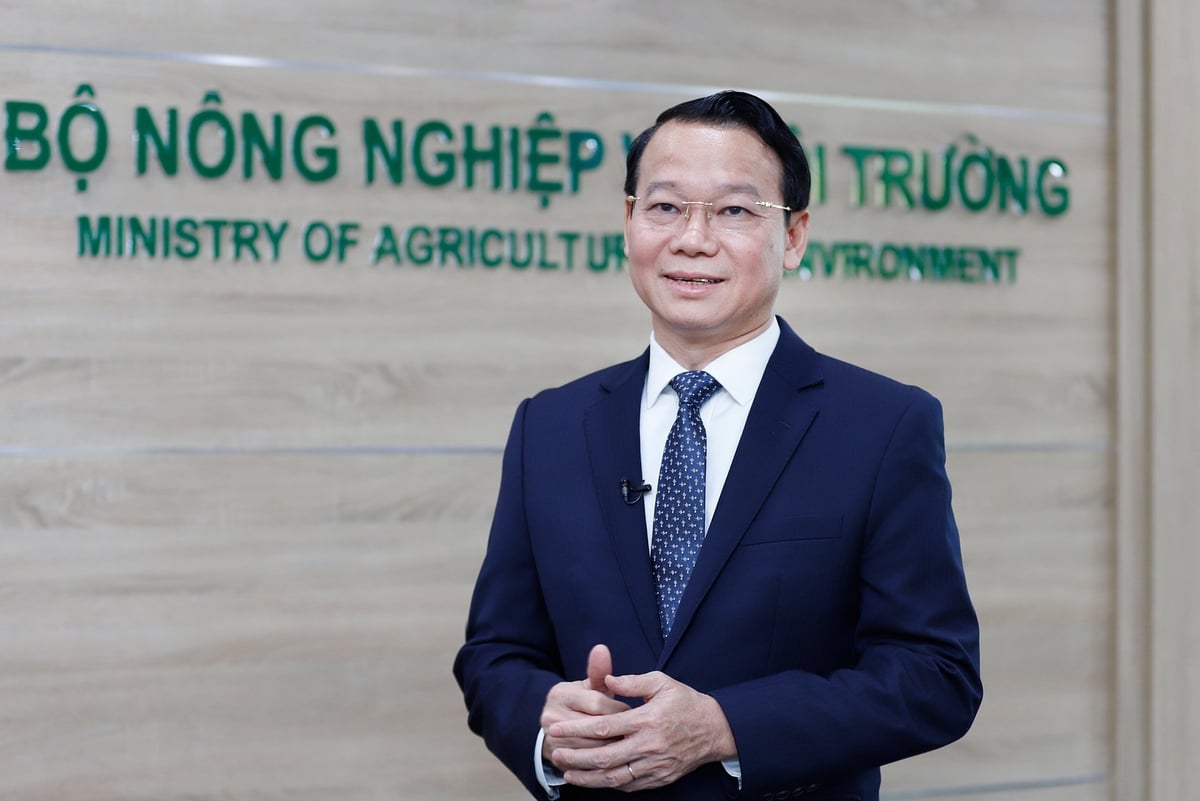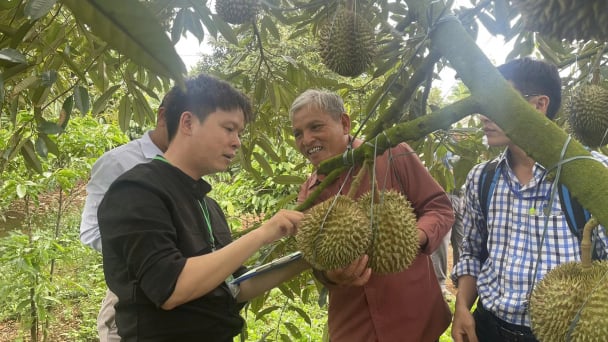June 1, 2025 | 10:49 GMT +7
June 1, 2025 | 10:49 GMT +7
Hotline: 0913.378.918
June 1, 2025 | 10:49 GMT +7
Hotline: 0913.378.918
"Individual action is insufficient to defeat the plastic waste epidemic" - Minister Do Duc Duy's primary message during the World Environment Day Celebration. He addressed every citizen, business, and level of government, emphasizing the necessity of a new journey to free our environment from the grip of plastic pollution.

The Minister of Agriculture and Environment sent a message: The fight against plastic waste cannot be won by individual efforts. Photo: Khuong Trung.
According to the United Nations, the global disposal of plastic amounts to hundreds of millions of tons annually. The majority of this plastic never completely breaks down; instead, it enters our bodies, soil, water, and air. Vietnam is also experiencing increasing pressure from this form of waste due to its extensive coastline and rapidly expanding consumption and production.
So, what are the solutions to address plastic pollution and forge new pathways?
Since 2020, Vietnam has adopted an innovative approach, transitioning from outdated, burdensome, and expensive collection and treatment methods to proactive prevention, reuse, recycling, and eco-design from the outset, as a result of implementing the Law on Environmental Protection.
The Extended Producer Responsibility (EPR) mechanism has been one of the most significant reforms. Companies are now accountable for the environmental impact of their products throughout their lifecycle, in addition to manufacturing them.
Experts agree that this transition is both difficult and advantageous. Only when products are designed to avoid becoming waste, when materials are recycled to extend their lifecycle, and when consumption habits are shaped by policies can we truly reverse the current trajectory.
These changes are beginning to manifest in a variety of enterprises, localities, and communities, which is a source of encouragement. Provincial governments in Hai Phong, Quang Ninh, Da Nang, Binh Duong, and Ho Chi Minh City have successfully implemented "green markets," plastic-free urban zones, and waste separation at the source. Businesses are beginning to implement circular economy models, recycled packaging, and bioplastics.
Initiatives such as "Plastic-Free Ha Long Bay" and "Plastic-Free Co To" in Quang Ninh have had a significant impact by substituting over 98% of polystyrene buoys – one of the most harmful categories of marine waste – with more environmentally friendly HDPE plastic buoys. Despite their local nature, these actions can have substantial repercussions.
However, these stories also disclose an essential reality: no individual can walk this path separately. It is impossible for the government to achieve success if businesses continue to produce unregulated single-use plastics. Businesses are unable to prosper in the absence of environmentally friendly consumer choices. Without access to information, government support, and a willingness to transition away from disposable plastics, citizens are unable to alter their behaviors. To facilitate the movement of the entire system, each link in the chain must collaborate effectively.
The fight against plastic pollution is not a matter of one-time campaigns or short-lived programs. This is a sustained endeavor to establish a policy ecosystem that is responsive, a model of sustainable production, and a culture of responsible consumption.
If we are still able to make a decision today, let us opt to take a resolute stance against single-use plastic. We should commence immediately if we can alter even one habit, such as refusing plastic straws or carrying a reusable bag to the market.
If you’re a business, envision a new product line where “green” is not just a colour, but a commitment. Every minor action we take today is the foundation of the future; it is not a result of chance.
Minister Do Duc Duy emphasizes that the prevention of plastic pollution necessitates a unified effort from the political system, enterprises, citizens, and the global community. Only then can we safeguard our environment and ensure a verdant planet for the present and future generations.
Let us begin by taking the simplest actions to achieve a plastic-free Vietnam. This will ensure that clean rivers and pristine coastlines are free of drifting bottles, and that future generations will be proud to say that they contributed to the preservation of a cleaner, greener Earth.
On June 1 in Quang Ninh, a solemn rally was held to celebrate World Environment Day (June 5) and to launch the Action Month for the Environment 2025. The Ministry of Agriculture and Environment, in partnership with the Quang Ninh Provincial People's Committee, coordinated the event. The Vietnam Agriculture and Nature News was the implementing media unit.
This year’s event followed the global theme “Beat Plastic Pollution,” as initiated by the United Nations Environment Programme (UNEP).
Translated by Linh Linh

(VAN) This was the directive given by Deputy Minister Phung Duc Tien during a meeting with the Department of Livestock Production and Animal Health, and relevant stakeholders to prevent and control African swine fever.

(VAN) For the durian industry to succeed, the value chain must fulfill its commitments to the government, the community, and international partners.

(VAN) Vaccinating juvenile pangasius helps reduce disease, antibiotic use, and farming costs, increasing profits for export-oriented farmers in An Giang.

(VAN) Due to a limited supply of workforce and competitive recruitment requirements, businesses struggle to retain talented veterinary human resources.

(VAN) WOAH’s guidance aims to mitigate disease risks through a One Health approach that balances economic, conservation, and public health interests.

(VAN) Ms. Nguyen Thi Dung, Deputy Director of Ngoc Hoang Cooperative, shared about the journey of bringing dragon fruit to Europe, achieving annual revenues in the billions of VND.